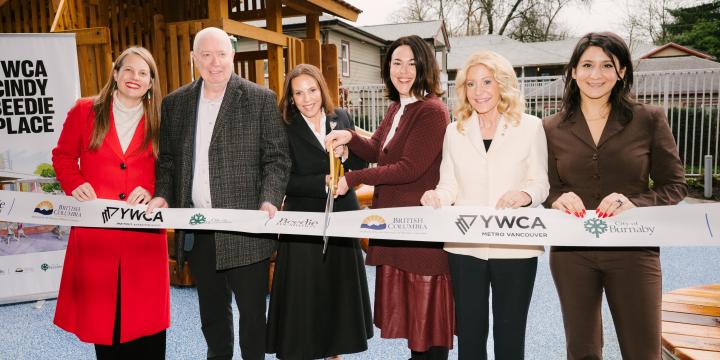
In BC, nearly 48% of women have experienced some form of intimate partner violence—whether physical, sexual, emotional, psychological or financial—since the age of 15, according to Statistics Canada data. This deep-rooted prevalence pushed us at YWCA Metro Vancouver to establish a coalition with more than 30 other anti-violence organizations, academic experts, business leaders, community advocates and educators, calling on BC’s government to declare gender-based violence an epidemic.
After multiple meetings, the coalition drafted a letter outlining the severity of gender-based violence in our communities and sent it to Premier David Eby and several other MLAs, calling on them to take bold action.
Advocacy work ramped up last fall, during the 16 Days of Activism to End Gender-Based Violence, through our Close to Home Campaign. The campaign included collecting hundreds of signatures supporting our letter to the premier and bus stop ads in Vancouver showing the prevalence of sexual assaults within a 10-block radius of each ad.
“We wanted to create a way to remind people how pervasive gender-based violence is,” YWCA Metro Vancouver CEO Erin Seeley said in an interview with CBC News. “It’s not isolated in specific neighbourhoods, it really is across all our communities.”
The Close to Home campaign attracted significant media coverage, including pieces by CBC, CTV, Ming Pao and an op-ed by Erin and former MLA Katrina Chen in the Vancouver Sun.
Members of the YWCA team then met with Premier David Eby in December, and in January, he acknowledged gender-based violence as an epidemic in his mandate letter to Minister of Finance Brenda Bailey.
Looking ahead, the YWCA will examine the economic impacts of gender-based violence in BC, thanks to funding from The Houssian Foundation and SPARC BC.
We’re thrilled with this progress, but we know there’s so much more that can be done. We’re calling for the BC Coroner to conduct a review of suspected deaths resulting from gender-based violence and want to see the provincial government adopt a multi-pronged approach to prevent, track and address this violence. We’re also calling for more investments in transitional and long-term housing to support women, children and gender-diverse people and more focus on violence prevention.
“Gender-based violence needs to be at the forefront and needs a whole-of-government approach to address it,” Erin said.
For more information on our advocacy work, please contact Shauna Shortt at sshortt@ywcavan.org.

